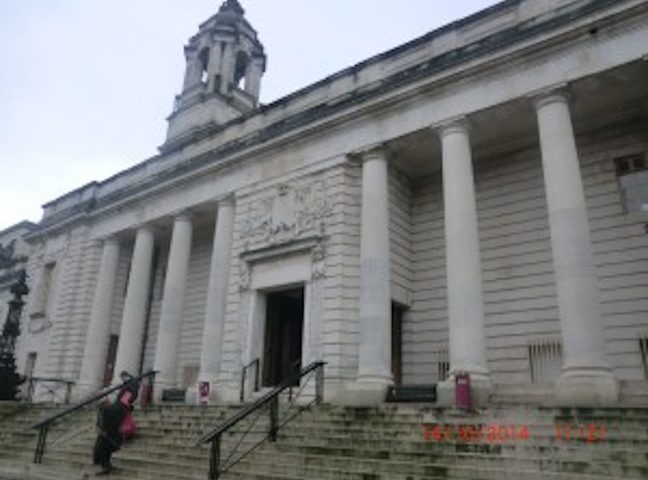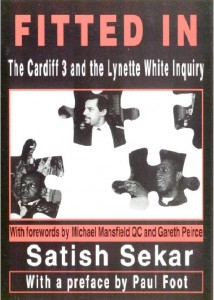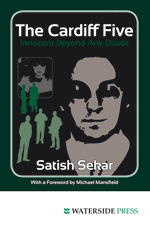
An Exceptional Injustice (Part 2) Resolution
September 22, 2014
An Exceptional Injustice (Part 4) – The New Cardiff Three
September 22, 2014The New Cardiff Three
A Deeply Flawed Process
We had hoped that the inquiry into what went wrong, which began in July 2003, would mean that our task had been completed. There was a lot of material to go through and the whole process took over eight years only to end in abject failure. Thirty-four people involved in that case – 20 were serving or retired police officers – were arrested and interviewed under caution on suspicion of offences including perjury and conspiracy to pervert the course of justice. South Wales Police insisted on conducting the investigation themselves. This was a preventable error. If anything went wrong, which it did, the failure would be blamed on them whether it was their fault or not.
The IPCC (Independent Police Complaints Commission) became involved in 2004 and later the (CPS) Crown Prosecution Service were consulted too. The CPS’s Serious Crimes Department eventually decided which of the 34 would face trial and who would not. Despite only taking silk recently (becoming a Queen’s Counsel) recently Nicholas Dean was appointed to lead the prosecutions. The CPS has never explained why it chose such a comparatively inexperienced QC to lead such important prosecutions.
In 2007 it decided to prosecute the so-called core witnesses – the alleged eye-witnesses – first. Paul Atkins was deemed unfit to stand trial, which left Mark Grommek, Angela Psaila and Learnne Vilday to stand trial on three counts of perjury which began on October 17th 2008. This decision was tactically inept and would have huge consequences later. It would lead to a miscarriage of justice – the second in the same case. It would also demonstrate the fundamental unfairness of the laws on duress – a defence which was denied to these defendants even though everyone present at their trial including judge, jury and prosecution accepted that they had been bullied into making those statements by the police.
The Fruit of the Poisoned Tree
Unlike many The Fitted-In Project saw the injustice of what was happening at the time and our CEO Satish Sekar immediately highlighted it in the Fitted-In Journal. The CPS had used the system and law well – cynically in fact. Prosecuting the three witnesses meant that it could not be accused of favouring them, but there was a problem and their lawyers knew it. Their statements and testimony had been studded with inconsistencies and lies and this had been glaringly obvious for 20 years.
These were the very lies that established them as prosecution witnesses against the Cardiff Five. They had been boxed in to commit perjury by these statements. Surely, the way the statements had been obtained was relevant, or at least it should have been.
They had told the same story – the truth for several months in 1988 – until ‘conduct unacceptable in a civilised society’ turned them into prosecution witnesses in November and December 1988. Once those statements were made – the CPS belatedly accepted that these were extracted under duress – they were trapped, knowing that if they deviated from them they could be prosecuted. Now, without trace of irony in the CPS, they were prosecuted for telling the very lies they had been forced to tell.
The CPS knew that it needed to avoid charging them over those statements, as it was part of their case that these witnesses had indeed been bullied and hectored and subjected to treatment that disgraced the criminal justice system. They were charged over the committal hearings and both trials of the Cardiff Five, but not over their statements. That was deliberate, as the Crown would claim that they had ample opportunity to tell the truth after they had been bullied, but did they?
There was no doubt that these witnesses had lied both in their crucial statements and in evidence at the committal hearing of the Cardiff Five and two trials. The questions that needed answering were why and whether they had any free choice in their actions? This was in fact the classic example of the fruit of the poisoned tree and contributed to yet another miscarriage of justice – something we highlighted when our CEO dubbed them the ‘New Cardiff Three’.
To prosecute people for telling lies that prosecuting authorities accept they were forced to tell is grossly unfair to put it mildly and to deny them access to the clearest proof that they too were victims of scandalous conduct denied them their right to a fair trial.
Continue to Exceptional Injustice P.4




